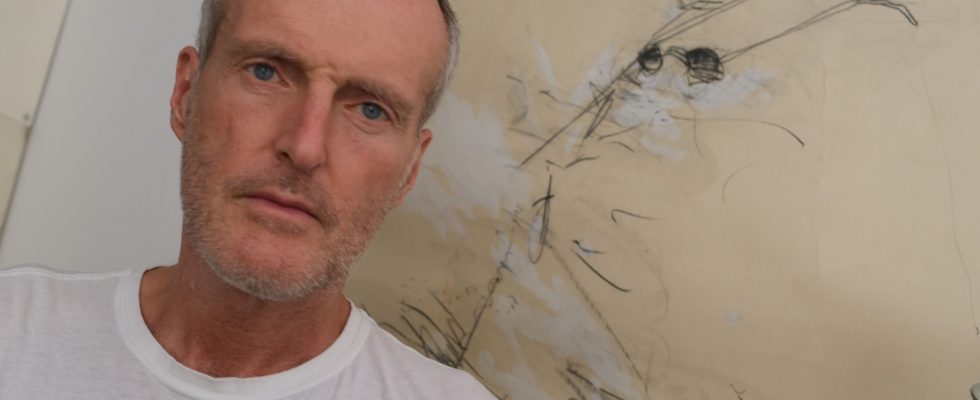Although it is published in 40 countries, like a true savage, Robert Seethaler never goes abroad. The only, or almost, exception is Paris, in loyalty to its publisher, Sabine Wespieser (who has published it in France since 2014 and Tresniek Tobacco), for the beauty of the capital and for the proximity to Berlin, his adopted city. “I hate traveling, but I have a guilty conscience,” the Austrian tells us, “because behind each publisher, behind each jury, there are men and women who have read and appreciated my books.”
In fact, the immense Robert Seethaler (nearly two meters high) is hardly a paradox. Popular actor (especially in his role by Luca Moroder, alongside Rachel Weisz, in the film Youth by Paolo Sorrentino), he hates being in the line of fire: “it’s a question of modesty, when I play, I’m always ashamed, I feel naked, as if I let the gaze of others pass through my soul”. Absolute bestseller (Tresniek Tobacco sold 1 million copies and A whole life, his 6th novel, at 1.5 million), he flees society and salons, but, another French exception, he went to Le Livre sur la place, in Nancy, from September 8 to 10.
A monument of humanity that we would never want to leave
Success always catches up with him. So this Cafe with no name [trad. de l’allemand (Autriche) par Elisabeth Landes et Herbert Wolf, 248 p., 23 €], released in German in March and which has already collected 200,000 copies. “There is nothing spectacular, it does not tell the story of the heist of the century, but this story is touching,” he points out, almost embarrassed. Nothing “sensational” in fact in this x-ray of a café in Vienna from 1966 (the year of his birth) to 1976, but hundreds of details, descriptions, smells, paintings, romantic moments or friendly experiences experienced by its myriad of endearing characters making up the “little people” of the Carmelite market, who make this novel a monument of humanity that we would never want to leave.
To understand Robert Seethaler, the screenwriter, who worked at the Volkstheater and became a writer in 2006, at the age of 40, we have to go back to his origins. Modest, by his family – his grandfather was a wood turner and sculptor, his father worked as a tarmacer then in the gas service, his mother was a dishwasher all her life –, and marked by a visual impairment significant enough for He took his first classes in a school for the visually impaired. “It was a determining factor,” he explains. “I have to close my eyes to find a word, or even to think, but, paradoxically, I am a completely visual person, I am crossed by many images which parade like in the cinema and to which I give substance through writing.”
“All I have to do is set foot on the Viennese pavement for the memories to flood back”
Among these images, there is this Vienna from the end of the 1960s, a pivotal era in the Austrian capital, yesterday destroyed and in the process of getting a makeover. To accurately convey the atmosphere of the Leopoldstadt district, a stone’s throw from the Prater Ferris Wheel, the author did not need documentation. “These are my roots, I know these smells and I share the values of this working environment where a handshake is worth more than a contract and where we look into each other’s eyes when we speak. My first memories go back in 1970-1971, it is archaic memories, like flashes, illuminations, which return; for that, I just have to set foot on the Viennese pavement.”
In his sights, Robert Simon, 31 years old, war orphan, handyman on the Carmelite market and, very quickly, brave and generous manager of an old café soon frequented by a host of regulars. Next to him, the devoted and gironde Mila, an unemployed ex-seamstress, is hard at work. Solitaries, retirees, workers, shopkeepers, drunkards, card players, cripples, manhunters, wrestlers… they all parade under the empathetic pen of the author, determined to fight against pettiness of all kinds and to give to his small world, behind an apparent simplicity and naivety of “class”, the most worthy aspirations and feelings. We journeyed with them for ten years until the café closed, much to our despair. At the same time, on August 1, 1976, the Reichsbrücke bridge collapsed. Don’t panic, “a new world is starting,” concludes Robert Seethaler, a positive philosopher.
